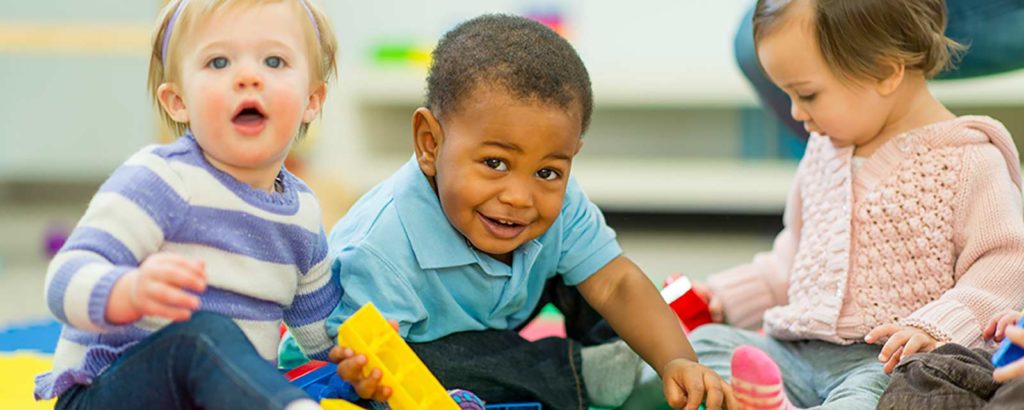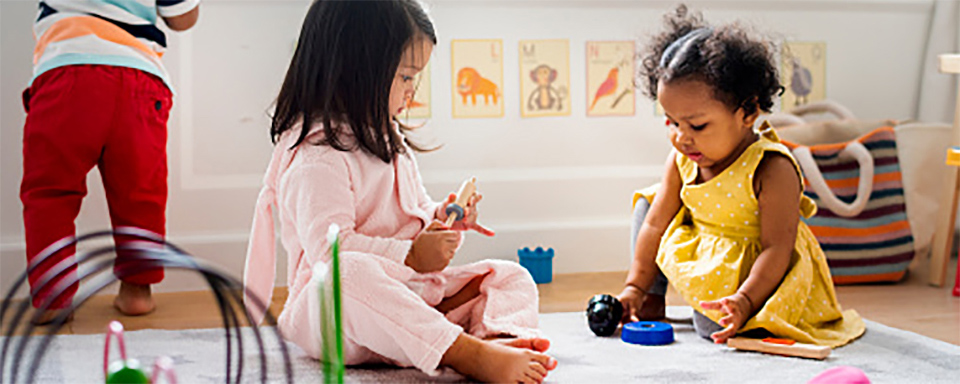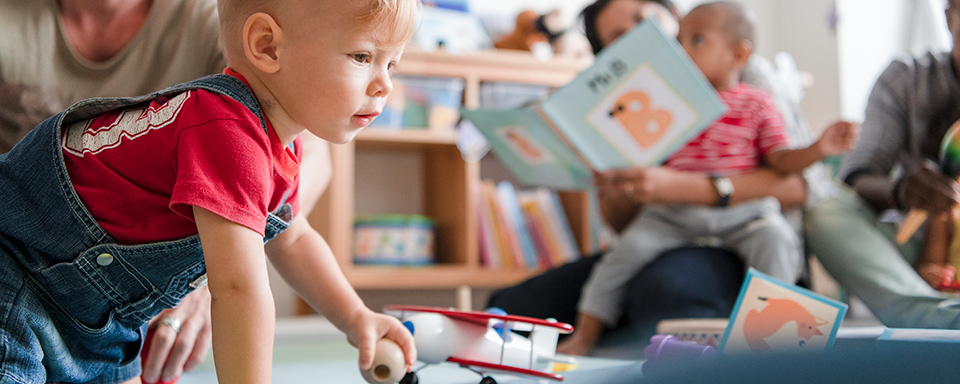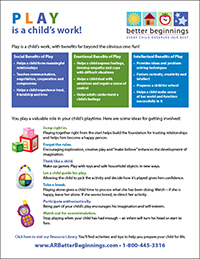Social Benefits of Play
• Helps a child form meaningful relationships
• Teaches communication, negotiation, cooperation and compromise
• Helps a child experience trust, friendship and love
Emotional Benefits of Play
• Helps a child express feelings, develop empathy and cope with difficult situations
• Helps a child deal with emotions and regain a sense of control
• Helps adults understand a child’s feelings
Intellectual Benefits of Play
• Provides ideas and problem-solving techniques
• Fosters curiosity, creativity and intellect
• Prepares a child for school
• Helps a child make sense of her world and function successfully in it
You play a valuable role in your child’s playtime. Here are some ideas for getting involved:
Jump right in.
Playing together right from the start helps build the foundation for trusting relationships and helps him become a happy person.
Forget the rules.
Encouraging exploration, creative play and “make believe” enhances the development of imagination.
Think like a child.
Make up games. Play with toys and safe household objects in new ways.
Let a child guide his play.
Allowing the child to pick the activity and decide how it’s played gives him confidence.
Take a break.
Playing alone gives a child time to process what she has been doing. Watch – if she is happy, leave her alone. If she seems bored, re-direct her activity.
Get involved.
Being part of your child’s play encourages his imagination and self-esteem.
Watch out for overstimulation.
Stop playing when your child has had enough – an infant will turn his head or start to fuss.
View/Download the PDF version here. (Right click and chose “Save Link As” to download)
Click here to visit our Family Resource Library. You’ll find activities and tips to help you prepare your child for life.








